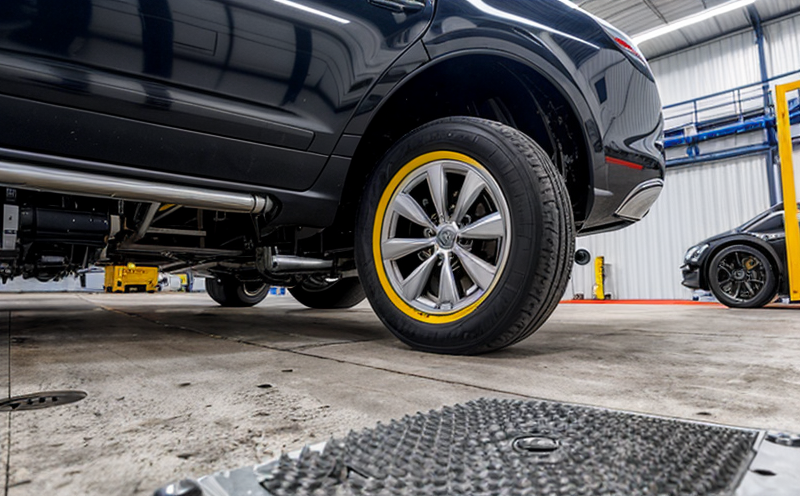ASTM F2924 Titanium Alloy AM Part Qualification for Aerospace
The ASTM F2924 standard is a critical benchmark in validating additive manufacturing (AM) processes, particularly for titanium alloys used in aerospace applications. This service focuses on ensuring the structural integrity and performance of parts manufactured using AM techniques. The process involves meticulous qualification tests designed to meet stringent aerospace safety requirements.
Our laboratory follows this standard rigorously to ensure that each part produced meets not only the ASTM F2924 criteria but also aligns with broader international standards such as ISO 527-1, EN 10356:2018, and ASME Code Section VIII Division 2. This ensures that the parts are suitable for integration into complex aerospace systems.
The qualification process begins with a detailed analysis of the AM process parameters including laser power settings, scanning speed, layer thickness, and post-processing treatments such as heat treatment and aging. These parameters significantly influence the mechanical properties of the final part. After initial testing, the parts undergo comprehensive characterization using advanced techniques like X-ray Diffraction (XRD), Electron Backscatter Diffraction (EBSD), and Transmission Electron Microscopy (TEM) to ensure microstructure uniformity.
Once the process is optimized and characterized, we fabricate a series of test specimens. These are subjected to mechanical testing such as tensile, compressive, and fatigue tests according to ASTM E8M and ASTM E1651 standards. The results provide insights into the part's strength, ductility, and fatigue life under simulated aerospace conditions.
Non-destructive testing (NDT) methods are also employed to ensure that parts are free from defects such as porosity, cracks, or inclusions. Techniques like radiography, ultrasonic testing, and magnetic particle inspection are used depending on the part geometry and material properties.
The final step involves a detailed report analysis which includes not only the test results but also recommendations for process improvements based on the findings. This ensures that any deviations from expected performance can be addressed promptly to maintain high-quality standards.
- Key Testing Parameters: Laser power, scanning speed, layer thickness, heat treatment, aging
- Materials Characterization: XRD, EBSD, TEM
- Mechanical Testing: Tensile, compressive, fatigue tests according to ASTM E8M and ASTM E1651
- NDT Methods: Radiography, ultrasonic testing, magnetic particle inspection
This comprehensive approach ensures that each part manufactured adheres strictly to the requirements set out in ASTM F2924 while also meeting broader aerospace industry standards. This process is crucial for maintaining safety and reliability in complex aerospace systems.
Applied Standards
The application of ASTM F2924 ensures that parts manufactured through AM are not only structurally sound but also comply with stringent aerospace requirements. This standard mandates the qualification of additive manufacturing processes for titanium alloy parts used in critical aerospace applications.
- ASTM F2924: Qualification of Additive Manufacturing Processes and Parts
- ISO 527-1: Mechanical testing of plastics - Part 1: Tensile testing
- EN 10356:2018: Titanium and titanium alloys - Chemical analysis by means of inductively coupled plasma spectrometry (ICP-AES)
- ASME Code Section VIII Division 2: Rules for nuclear power plant pressure vessels
The use of these standards guarantees that the parts manufactured meet international quality benchmarks, ensuring they are safe and reliable for use in aerospace applications.
Eurolab Advantages
At Eurolab, we offer unparalleled expertise in ASTM F2924 qualification services specifically tailored to the aerospace sector. Our state-of-the-art facilities and experienced technical team ensure that every part meets not only the specified standards but also exceeds industry expectations.
- Advanced Facilities: Equipped with cutting-edge equipment for process parameter optimization, materials characterization, and mechanical testing
- Experienced Team: Our professionals possess deep knowledge in AM processes and aerospace requirements
- Comprehensive Reporting: Detailed reports that include process parameters, test results, and recommendations for improvement
- Custom Solutions: Tailored qualification plans to meet specific customer needs
We ensure that every part is not only qualified according to ASTM F2924 but also meets broader aerospace industry standards. Our commitment to quality and reliability makes us a preferred partner for aerospace manufacturers seeking to integrate AM technology into their production processes.
Quality and Reliability Assurance
Ensuring the highest level of quality and reliability in additive manufactured parts is at the core of our service. This section outlines some key aspects that contribute to our robust quality assurance process.
- Process Monitoring: Continuous monitoring of AM processes to ensure adherence to specified parameters
- Data Analysis: Comprehensive analysis of test data to identify trends and potential areas for improvement
- Non-Destructive Testing (NDT): Regular use of radiography, ultrasonic testing, and magnetic particle inspection to detect defects
- Material Characterization: Advanced techniques like XRD, EBSD, and TEM ensure microstructural uniformity
- Test Specimen Fabrication: Production of representative test specimens for mechanical and NDT testing
- Reporting: Detailed reports that provide insights into the qualification process and recommendations for future improvements
Our rigorous quality control measures ensure that every part is not only qualified according to ASTM F2924 but also meets international standards. This commitment to excellence ensures that parts are reliable and safe for use in critical aerospace applications.





